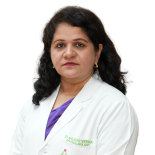About Ophthalmology
Ophthalmology may be defined as a speciality centring on diagnosing, treating, and managing diseases and disorders affecting the eyes. It is, to a great extent, one of the most specialised areas within medicine. There are very important concerns for this most vital sense-vision. The eye is a complex organ, and its proper functioning determines the performance of daily activities, from basic working tasks to complex activities. With the rise in the prevalence of eye disorders, mainly due to increasing age, prolonged screen time, and other systemic diseases, the importance of ophthalmology has increased manifold.
Vision problems are not just confined to the elderly. They can affect people of all ages, including children and young adults.
From simple refractive errors, such as myopia and hyperopia, to more chronic conditions, such as glaucoma, cataracts, and retinal diseases, the scope of ophthalmology is very broad. The most recent advances in ophthalmic technology and surgical techniques have enabled professionals in this field to restore and improve vision in previously unimaginable ways, even just a few decades ago. Ophthalmology is constantly evolving, and research goes on to develop new treatments.
What is ophthalmology?
Ophthalmology is the branch of medicine dealing with the health of the eye and its associated structures, such as the visual system. The ophthalmologist is a physician who has acquired specialised training in both medical and surgical care for diseases, treatments, and operations of the eyes. This includes the diagnosis and treatment of diseases found within the eye and performing surgeries while prescribing corrective measures, such as glasses or contact lenses.
It is an organ of immense complexity that truly calls for a multi-disciplinary approach to its care. An ophthalmologist is trained to deal with a broad range of ocular issues, including refractive errors such as myopia or nearsightedness, infectious diseases, genetic conditions, traumatic injuries, and systemic diseases manifesting in the eye, such as diabetes or hypertension.
Modern ophthalmology includes advanced diagnostic techniques, like retinal imaging, optical coherence tomography (OCT), and corneal topography. Thus, diagnoses can be made early and appropriate treatment can be provided for the diseases. In many instances, ophthalmologists align themselves with optometrists and opticians to ensure comprehensive care. The primary role of an optometrist involves vision care and prescription glasses or lenses. Ophthalmologists deal with more complex medical interventions and surgical services.
With the ageing of the global population and increased screen time leading to eye strain, the demand for ophthalmology is on the rise. Further, systemic diseases, like diabetes, are on the increase along with its associated complication, diabetic retinopathy, making it more of a requirement in preventive healthcare than ever before.
Which diseases are treated by an ophthalmologist?
Treatments for ophthalmologists include a wide range of eye and vision diseases, broadly categorised into refractive errors, age-related eye diseases, infectious and inflammatory diseases, traumatic injuries, and systemic diseases affecting the eyes. Some of the common diseases treated by ophthalmologists are as follows:
Refraction errors
- Myopia (Nearsightedness): A blurry view of far-away objects
- Hyperopia (Farsightedness): Difficulty seeing close objects
- Astigmatism: Irregularly shaped cornea leading to a blurred or distorted vision
- Presbyopia: Inability to focus on closer objects due to advanced age
Cataracts
Cataracts are the opacification of the eye’s natural lens and may cause problems in vision, glare sensitivity, and even blindness if left uncorrected. Cataracts occur most commonly in older populations but can also arise as a result of trauma, some medicines, and congenital factors. Among the world’s most frequently performed surgeries, cataract surgery has an extremely high success rate.
Glaucoma
Glaucoma represents a group of eye diseases causing harm to the optic nerve due to unrelieved intraocular pressure (IOP). In most cases, glaucoma can lead to permanent vision loss unless treated. There are different types of glaucoma, including open-angle glaucoma, angle-closure glaucoma, and congenital glaucoma, all of which require unique approaches to treatment, ranging from eye drops to surgery.
Macular degeneration
The condition that affects the central area of the retina, called the macula, is known as age-related macular degeneration. The progressive loss of the central vision in AMD makes it difficult to read and recognise a human face. It is an important cause of acquired vision impairment in the elderly.
Communicable disease conjunctivitis (Pink eye)
It is an infection of the conjunctiva caused by germs or viruses.
Squinting
In medical terms, this condition is known as strabismus, describing the way in which the eyes fail to point in the same direction. It is a very common phenomenon among children and is treated either with surgeries or correction lenses.
What are the signs and symptoms of ophthalmology-related disorders?
Blurred or distorted vision
Probably the most common symptom of most eye diseases is blurry vision. Macular degeneration causes wavy or distorted vision, particularly when reading and focusing on finer text. Diabetic retinopathy may cause patches of blurred vision due to injury to the retina. In cases such as retinal detachment, there is sudden blurring and a complete loss of vision.
Eye pain
Sharp, throbbing, or aching eye pain may be a symptom of several conditions. In acute angle-closure glaucoma, there is severe eye pain with nausea and vomiting. Deep ache usually results from inflammation of the eye’s middle layer, known as uveitis. Conditions of the cornea, like abrasion or ulcer, can result in sharp pain and lead to photosensitivity. Optic neuritis is another common accompaniment of multiple sclerosis and often causes an eyeache that worsens with eye movement.
Redness in the eye
Red, bloodshot eyes are one of the hallmarks of irritation or inflammation. One of its most common causes is conjunctivitis or pink eye, which is often accompanied by discharge and itching. Dry eye syndrome causes red eyes due to low tear secretion. It is most often experienced after extremely long screen time or during windy or dry environments.
Light sensitivity (Photophobia)
Photophobia, or light sensitivity, is usually a painful symptom when it is severe. This is especially typical of uveitis since the inflammation within the eye makes it unbearable to tolerate light.
Double vision (Diplopia)
Double vision or having two images of one object may be an indication of misaligned eyes or muscle control, such as what occurs in cases of strabismus, also known as crossed eyes. Another reason for double vision is cataracts, which can cause this condition, especially when bright lights are involved in the visual field. Other causes of double vision include corneal irregularities and other nerve disorders, such as cranial nerve palsies, which can confuse the brain’s capabilities of combining the images from each eye.
Loss of peripheral vision
In most patients with glaucoma, the disease causes restriction of peripheral vision, or what many patients describe as ‘tunnel vision’. As an optic nerve problem evolves, peripheral vision is slowly lost.
Sudden vision loss
Sudden loss of vision – particularly unilateral – is a definite medical emergency. The most common cause of sudden vision loss is retinal detachment, and treatment should be given promptly if permanent blindness is to be avoided. Causes include optic nerve or brain stroke, central retinal artery occlusion (often known as an eye stroke), and acute glaucoma.
A sensation of dryness or grit in the eyes
Sometimes, gritty or dry sensations in the eyes can last for a long time and are painful. This may be one symptom of a condition called dry eye syndrome – the production of insufficient tears or tears of poor quality – therefore irritating the eye. More commonly, it could be a condition referred to as blepharitis, which is eyelid disease, or autoimmune disorders, such as Sjögren’s syndrome.
Irritation or burning sensation
Allergic conjunctivitis causes a burning or itching sensation in the eyes for a long time because allergens produce a red, itchy, and watery reaction to the eyes. Blepharitis also causes burning eyes that might frequently occur in the eyelids. Dry eye is another reason, and it occurs specifically in people who sit for long hours at a computer screen. Any infection, either viral or bacterial, causes itching and irritation in the eyes.
Eye drainage
All these often lead to a clear, yellow, green, or white eye discharge. Conjunctivitis, especially bacterial conjunctivitis, is usually accompanied by a heavy and sticky discharge that makes the eyelids stick together. Discharge from the oil glands around the eyes often results from blepharitis, especially if it is in its chronic state. Also, corneal ulcers and blocked tear ducts often result in excessive discharge.
Headache
Headaches, particularly ones in or around the eyes, may signal an eye disorder. Glaucoma, for example, except in closed-angle forms that can cause severe damage, is characterised by an elevated IOP, resulting in pain. Headaches may result from uncorrected refractive errors, including hyperopia, astigmatism, and/or myopia, especially with prolonged activities like reading or screen use.
Benefits of early intervention
Early detection and intervention into eye conditions can mean a whole lot in terms of outcomes. Many eye diseases are progressive, and there is not much symptom presentation in the early stages. By the time signs or symptoms surface, permanent damage may have been done.
Prevention of vision loss
In diseases like glaucoma or macular degeneration, detecting them in an early stage could prevent them from advancing. Again, early treatment of such diseases might not cure them, but it might arrest further progress while keeping a patient’s quality of life intact.
Improved recovery outcome
Cataracts and refractive errors are largely treatable if proper surgery or prescription lenses are administered to the patients before they progress. Complications in the surgical outcome or acuteness of the symptoms make recovery more burdensome and painful.
Reduced healthcare costs
Early detection can prevent future medical costs by possibly eliminating more extensive treatments or surgeries. Preventive care and scheduled screenings are much less costly than treatments for diseases that have reached an advanced stage.
Better management of systemic diseases
An eye examination can also reveal early signs of systemic conditions like diabetes or hypertension. This may result in better control of both ocular and systemic conditions.
How does Team Fortis help you during your treatment journey?
Fortis Healthcare is known for offering eye care services that are fully all-inclusive with a patient-centric approach. Ophthalmology at Fortis offers thorough diagnostics and treatments using sophisticated technology and a panel of highly qualified specialist experts in handling patients to ensure maximum results.
Extensive diagnostics
Fortis can provide a diagnostic machine such as OCT (optical coherence tomography), retinal imaging, and corneal topography that help examine the eye’s structures in precise details. This also helps in the early detection of diseases like glaucoma, macular degeneration, and diabetic retinopathy.
Expert team of ophthalmologists
The professionals here are exceptionally good and undergo a rigorous course of training in all subspecialties, including cataract surgery, retinal care, and the management of glaucoma. It is teamwork that leads to an appropriate treatment plan suited to an individual.
Individualised treatment plan
Fortis accords all patients an extensive evaluation, after which the treatment is planned as per the diagnosis. It is either surgical intervention or medical management or correction of vision, where appropriate, and always makes a point that the best care be delivered as soon and urgent as possible.
Aftercare
Fortis stresses follow-up care, particularly after surgeries like cataract removal or retinal procedures. The postoperative follow-up allows the monitoring of healing and early resolution of complications.
Patient education and preventive care
Along with the treatment of multiple eye diseases, Fortis ensures that patients are educated on prevention through proper eye care. Patients receive regular check-ups and lifestyle recommendations to prevent future complications in maintaining good vision health.
Conclusion
The branch of ophthalmology is quite important in the healthcare system, helping millions of people to preserve and regain their vision. The process of treating diseases in the eye requires detection at the right time, advanced technology, and skilful professionals, all of which are integrated and essential for a good outcome.
Our Team of Experts
View allMedical Procedures for Ophthalmology
View allRelated Specialities
Other Specialities
-
Explore Hospitals for Ophthalmology
Fortis Escorts Heart Institute, New Delhi Fortis Escorts Hospital, Amritsar Fortis Escorts Hospital, Faridabad Fortis Escorts Hospital, Jaipur Fortis Flt. Lt. Rajan Dhall Hospital, Vasant Kunj Fortis Hospital & Kidney Institute, Gariahat, Kolkata Fortis Hospital CG Road Bangalore Fortis Hospital, Anandpur, Kolkata Fortis Hospital, Mohali Fortis Hospital, Mulund, Mumbai Fortis Hospital, Noida Fortis Hospital, Shalimar Bagh, New Delhi Fortis La Femme, Greater Kailash II, New Delhi Fortis Memorial Research Institute, Gurgaon Hiranandani Fortis Hospital, Vashi, Mumbai S L Raheja Hospital, Mumbai Fortis Hospital, Ludhiana Fortis Hospital - Greater Noida Fortis Hospital, Manesar, Gurugram -
Explore Doctors for Ophthalmology by Hospital
Doctors in Fortis Escorts Heart Institute, New Delhi Doctors in Fortis Escorts Hospital, Amritsar Doctors in Fortis Escorts Hospital, Faridabad Doctors in Fortis Escorts Hospital, Jaipur Doctors in Fortis Flt. Lt. Rajan Dhall Hospital, Vasant Kunj Doctors in Fortis Hospital & Kidney Institute, Gariahat, Kolkata Doctors in Fortis Hospital CG Road Bangalore Doctors in Fortis Hospital, Anandpur, Kolkata Doctors in Fortis Hospital, Mohali Doctors in Fortis Hospital, Mulund, Mumbai Doctors in Fortis Hospital, Noida Doctors in Fortis Hospital, Shalimar Bagh, New Delhi Doctors in Fortis La Femme, Greater Kailash II, New Delhi Doctors in Fortis Memorial Research Institute, Gurgaon Doctors in Hiranandani Fortis Hospital, Vashi, Mumbai Doctors in S L Raheja Hospital, Mumbai Doctors in Fortis Hospital, Ludhiana Doctors in Fortis Hospital - Greater Noida Doctors in Fortis Hospital, Manesar, Gurugram




















